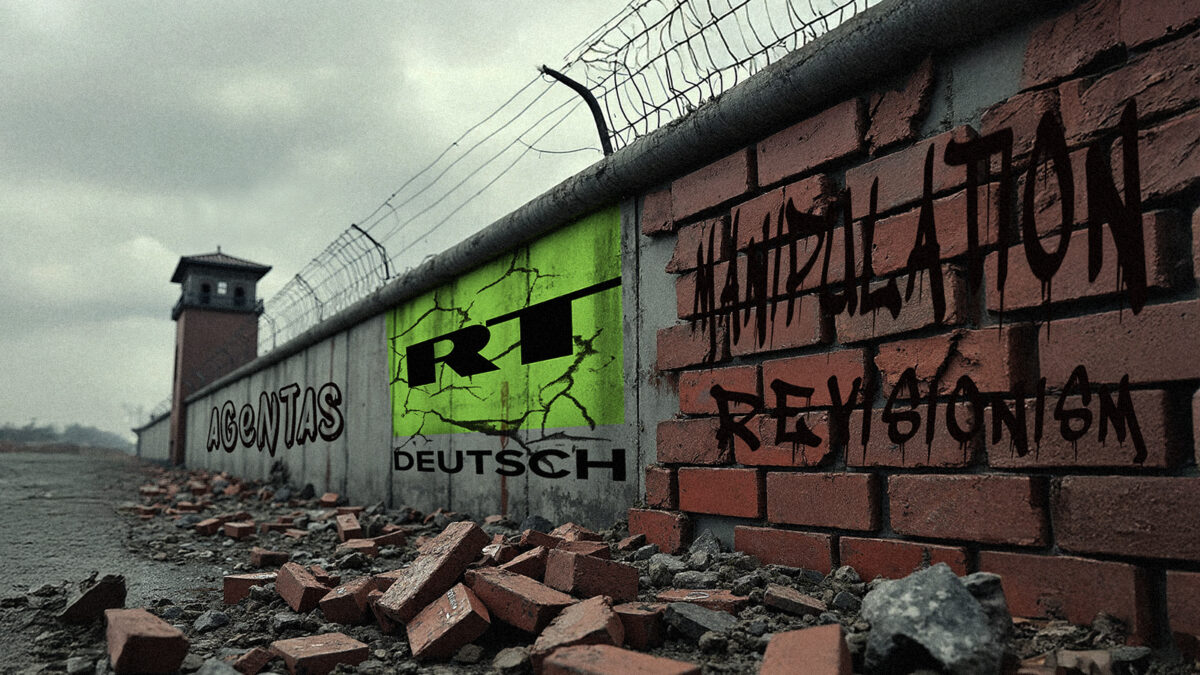Information manipulation tends to have specific aims in the here and now: to shift a policy, to confuse voters, to create instability in a society seen as hostile. But sometimes, these aims are best achieved by projecting manipulation into the past. The symbolic dates of 3 October and 9 November are good recent examples.
3 October, a public holiday in Germany, marks the day in 1990 when the Federal Republic of Germany and the German Democratic Republic were reunited in a single state. German unification had been made possible by the fall of the Berlin Wall on 9 November 1989.
But 9 November also marks another occasion, as the pro-Kremlin disinformation outlet RT Deutsch gleefully pointed out last year(opens in a new tab) – the first large-scale anti-Jewish pogrom in Nazi Germany in 1938, known as Reichspogromnacht or Kristallnacht (the Night of Broken Glass).
[…]
[The] RT German pieces question the meaning of 9 November and how German unification is being commemorated in contemporary politics in Germany. They shed doubt on the historical accuracy of the parallels being drawn between distinct events in an effort to address current issues related to anti-Semitism, violence, immigration, and the European position towards Russia.
While not immediately apparent as disinformation, the cumulative effect of such assertions is clear enough: a wholesale rewriting of recent history, at the service of contemporary agendas.



One more point:
It can be translated to “Anschluss” but the only reason why you’d use that particular infamous word in this context is to paint one particular picture. Otherwise you’d use either the correct word “Beitritt” or the euphemistic “Wiedervereinigung”.